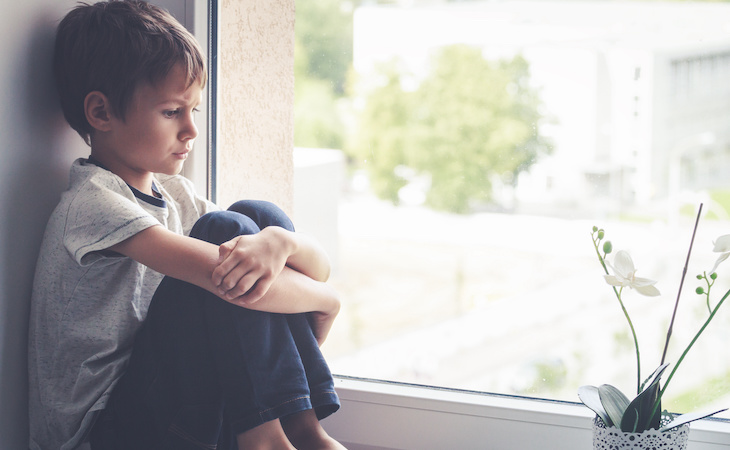If you’re a parent of a school-aged child, then chances are you’re concerned about the potential for them to be bullied. And your concerns are certainly warranted. According to the Centers for Disease Control and Prevention, as many as 20% of high school students report being bullied at school, while around 16% suffered from cyberbullying in the past year.
In the 2000s, the definition of bullying extended to include the internet and, eventually, social media, known as cyberbullying. The effects of cyberbullying can be even more devastating than traditional bullying because there’s no escaping the harassment. The effects of cyberbullying have resulted in many states passing laws against digital harassment.
Bullying can cause a ripple effect on almost every aspect of life—including your child’s sleep and overall mental well-being. What’s more disturbing is that the effects of bullying can be felt into adulthood. Children who’ve experienced bullying are more likely to be diagnosed with depression or other mental health conditions later in life, according to research published in JAMA Psychiatry.
But it doesn’t have to be this way. This article will explore the mental and physical effects of bullying—and offer strategies for helping both parents and kids cope.
The sleep and mental health effects of bullying
According to a University of Alberta and Dalhousie University study, about 40% of children who experience bullying are more likely to develop mental health conditions.
About 5,000 fifth-grade students were involved in the study, of which 24% said they experienced bullying while around 5% reported bullying other children.
When researchers contacted these fifth graders several years later, they found that students who experienced bullying were 38% more likely to be diagnosed with mental health disorders like anxiety and depression. But the list doesn’t end there as fear, low self-esteem, and poor school performance were also consequences of bullying.
Anxiety and fears make falling asleep and getting a deep sleep less likely. “It is not uncommon for the child who is being bullied to have poor sleep quality,” says Ashanti Woods, MD, pediatrician at Mercy Family Care Physicians in Baltimore.
Kids and teens usually need about nine hours of sleep. But kids who experience bullying get significantly less sleep—about six hours a night. Poor sleep is linked with poor attention and memory problems, negatively affecting school performance and social interactions.
Surprisingly, both victims and bullies can experience sleep disturbances. And according to Woods, “It’s not uncommon for the aggressor to have a very late sleep bedtime and a late wake-up time.”
According to a study that looked at the behavior of over 23,000 students in China, kids who were bullies, victims of bullying, or who were both bullies and victims experienced poorer sleep quality than those not involved in bullying in any way.
The physical effects of bullying
There are also physical effects of bullying, such as headaches, muscle pain, upset stomach, sudden weight changes, loss of appetite, and, last but not least, sleep disturbances.
According to Woods, kids who experience bullying:
- May suddenly not want to go to school.
- Are easily irritated.
- May display signs of aggression.
How to help kids cope with bullying
Bullying is a devastating experience that can negatively affect kids both emotionally and physically. These tips can help both kids and parents cope with bullying.
- Start by restricting their access to social media and the internet as much as possible, especially at home. Doing so will allow kids to relax and wind down in the evening, which should encourage better sleep.
- Make room during the day for some form of physical activity to reduce stress and improve sleep quality.
- Maintaining a healthy diet is vital for helping to manage stress and encourage better sleep. Kids should avoid stimulants like caffeine (e.g., sodas, chocolate, and energy drinks) as much as possible. Also, avoid heavy meals close to bedtime. Soothing beverages like chamomile tea may help with sleep.
- Ensure the bedroom is dark, cool (about 65°F), and quiet.
- Establish a regular sleep/wake schedule. On average, children and teens should get around eight to nine hours of sleep per night. Maintaining a consistent bedtime will help improve the quality of sleep over time and help reduce anxiety and depression, which are correlated with poor sleep quality.
- According to Woods, older parents, particularly ones who didn’t grow up with the internet, must acknowledge the stark differences between traditional bullying and cyberbullying. Traditional bullying is mostly found exclusive to school, but cyberbullying is 24/7 because the internet and social media never shut off.
The bottom line: Bullying can leave deep emotional scars on kids that follow them into adulthood. Fortunately, both kids and parents can work together to combat the effects of bullying and even prevent it from happening in the first place.
FAQs
What’s the Impact of bullying on mental health?
Traditional and cyberbullying can lead to anxiety, depression, poor sleep, low self-esteem, and even PTSD.
Is bullying a factor in depression?
Studies show a strong correlation between bullying and depression. Parents must learn to identify the signs of bullying in kids and encourage open communication with their children.
Meditation may be the key to better sleep for your child. Here’s how mindfulness meditation can help your child snooze soundly.




